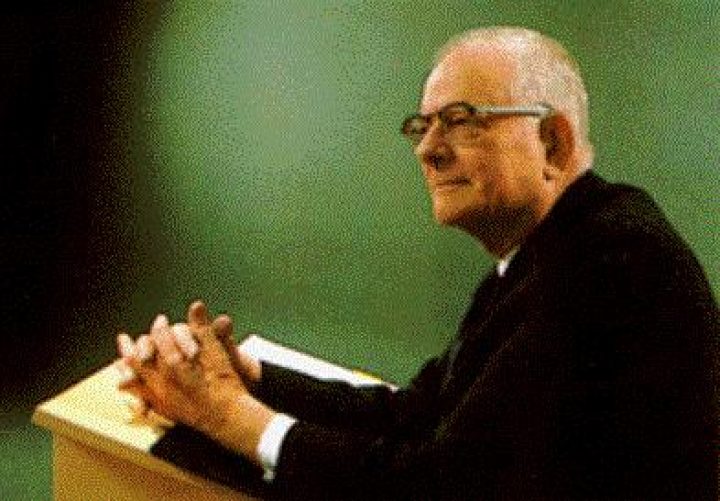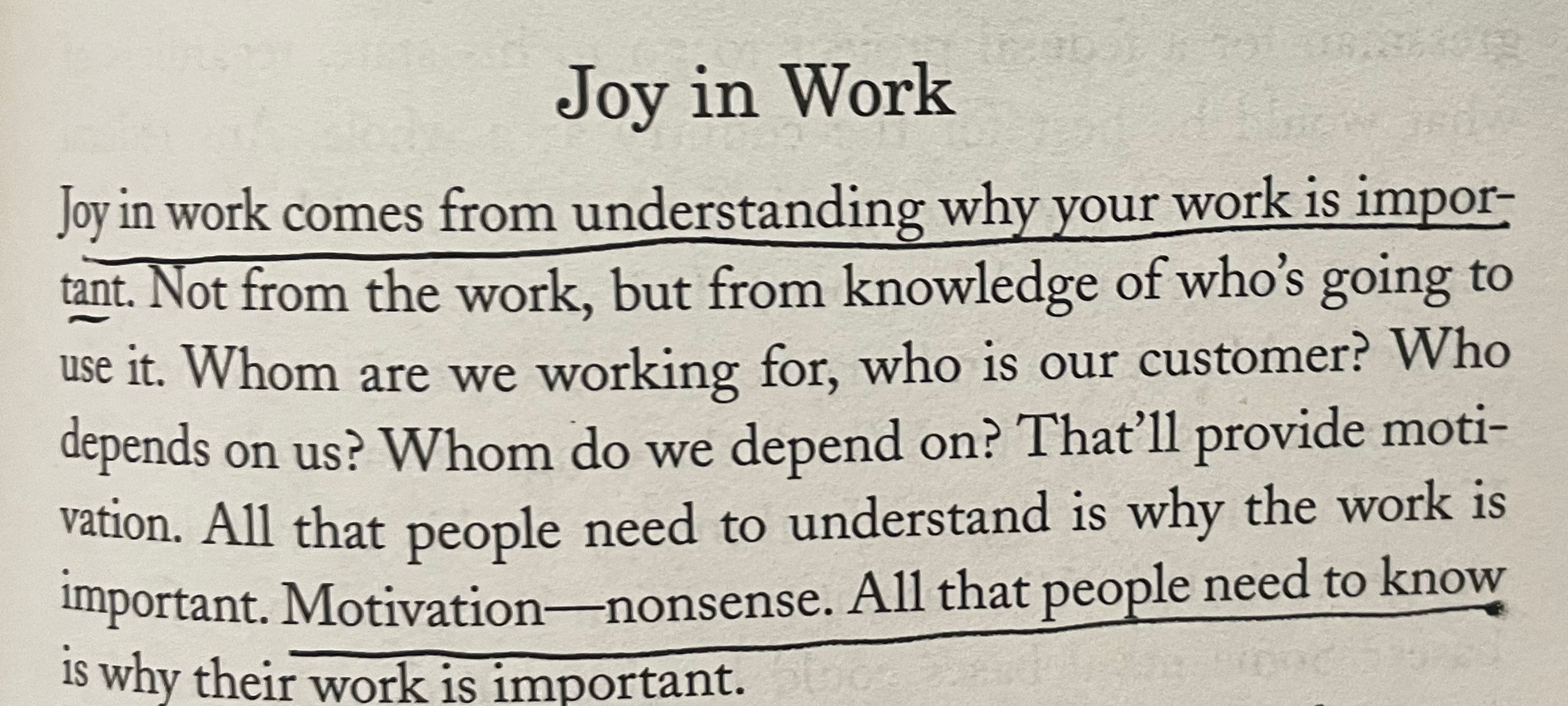
W. Edwards Deming: The Legacy He Deserves Is Not The One He’s Usually Given

The work of W. Edwards Deming is brilliant, wise, and insightful leading me to quote him often. But I didn’t start enthusiastic about Deming — something I hear from others as well. Why?
My distaste for what I was told were Deming approaches started when a manufacturing team used Deming’s name to justify rushing around in metric busy-ness — claiming it was “what Deming taught.” Yet while their metric passion was a political advantage, they never improved the product they delivered and contributed to the downfall of the company.
My manufacturing colleagues weren’t alone in promoting a one-dimensional image to advance their own agenda. The myth, justified with Deming’s name, that the best results in manufacturing come through management by metrics was found throughout business operations in the 1990s and 2000s. These efforts went so far as to generate an absurd claim that Deming said “that which cannot be measured cannot be managed.” (He didn’t. See below — he said the opposite.)
So I developed a distaste for their imagined Deming — an icon obsessed with the details — since my own focus was on how the business performed as a whole. Except, around 2010 I picked up a collection of writings and speeches and met the real Deming within the first few pages. His thinking was fresh and clear — he respected forces which, today, I would classify as part of complexity. It was exciting to discover not only that Deming was NOT what had been claimed but that his writing was some of the best writing about business I’d encountered — with a clear view of the impacts (positive and negative) of the presence of metrics in society and business. His clarity in articulating the problems with metrics was equal to his ability to recommend using them in the appropriate ways and circumstances.
If you are unfamiliar with Deming he trained as an engineer, mathematician and scientist. Born in Iowa, he was educated in Wyoming, Colorado, and at Yale. During the 1940s and 1950s he worked extensively around statistical issues of polling. Starting in 1950, he consulted with Japanese companies as they grew into 1980s powerhouses. In the late 1970s he started speaking and writing more — bringing to US industry many of the lessons he had learned from his work in Japan. Throughout this time he taught at New York University and in the graduate program at Columbia. (See the links below to learn more.)
I hope that by sharing bits of Deming that I find refreshing, others will come to seek him out for his clear, insightful business mind.
Deming Embraced Metrics — Not Management by Metrics
There is tremendous abuse of metrics in business today. As a result, what should be a useful aid to management has become a disaster in that it inhibits company success. The problem isn’t that businesses use metrics — they absolutely should. The problem is that they manage to metrics or manage by metrics. There is an insidious growth inside nearly every business I work with as a web of metric goals thread throughout a company with the hope that changing metrics changes company fortunes. These webs become dictators of employee effort in that they are tied to goals and compensation plans throughout the organization chart. At its extreme the metric mania CEO today imagines sitting in an office, changing a metric in his/her spreadsheet leading the entire business to increase effectiveness. Hah. Would that it were that easy. The primary result of this web, though, is to prevent companies from moving ahead to seize new opportunities.
Deming, trained as a statistician, knew that management by metrics was a disaster. Throughout his writing and speeches he maintains a constant refrain:
“Management by objective. Management by the numbers” is a bad management practice. (p 25, The Essential Deming)
He considered management by objective (MBO) and management by numbers to be forces of destruction observing about all 7 forces of destruction that “These forces create fear, self-defense, competition, and humiliation.” (Essential, p87)
Among his 14 points for improving management he recommends eliminating abuse of metrics: (Out of Crisis, page 24)
“11a. Eliminate work standards (quotas) on the factory floor. Substitute leadership.
b. Eliminate management by objective. Eliminate management by numbers, numerical goals. Substitute leadership.”
“Management by results is— like driving a car looking in your rear view mirror.” (www.Deming.org)
And then there’s this:
“In my mind, if you run your company on visible figures alone, you will have neither company nor figures, given a little time. The most important figures are unknown and unknowable. That opinion comes from my good friend, Dr. Lloyd Nelson. One unknowable figure, for example, is the multiplying effect of a happy customer who brings repeat or new business into the company. Another one is the multiplying effect of an unhappy customer who warns his friends, and even some of his enemies, about his experience. Another unknowable figure is the multiplying effect that comes from an employee group that is able to make a contribution to the company as a team. They see their jobs as important.” (Essential, page 170)
What about “That which cannot be measured…”?
The quote I noted above was incredibly, horribly, and terribly ripped from truth. What did Deming actually say? The opposite:
It is wrong to suppose that if you can’t measure it, you can’t manage it – a costly myth. (The New Economics)
It leaves me speechless that we can find memes all over the internet claiming he said exactly the opposite. I suspect that Deming, were he still with us, would be appalled at how obsessed business management and governmental management has become with metrics.
Thoughts on Other Areas from Deming
Deming offers superb insights on the challenges of nearly all aspects of managing a business. Here is a tease of his thoughts — some of which seem strikingly radical:
“It is a mistake to suppose that efficient production of product or service, or both, can with certainty keep an organization in business. You have to make something that has a market, and you may have to develop that market. That takes resources.” (Essential p107)
In the same speech, there’s this:
“The consumer is the most important end of the production line. If you don’t have a consumer, someone who will buy your product or use your service, you might as well shut down, close up… Why? The next quarterly dividend is not as important as existence of the company 5, 10, or 20 years from now. One requirement for innovation is faith that there will be a future.” (Essential p108)
 On employee responses to quality improvement efforts:
On employee responses to quality improvement efforts:
“You can’t fool the people on the job. They know better than that.” (Essential p 138)
“What happens when people are afraid? The economic loss from fear is appalling.” (Essential p 133)
On business school.
“At present, most schools of business teach students how business is conducted, and how to perpetuate the present system of management — exactly what we don’t need.” (Essential Page 99)
Of course, Deming was highly focused on quality. Even his discussions of factory specific issues can be a bit surprising:
“Quality can not be delegated. A company with a manager of quality by any name is stuck in the mire.” (Essential p43)
“Measures of productivity do not lead to improvement in productivity.” (Out of Crisis p15)
And, then there’s the idea of performance reviews… Deming called the merit system or annual appraisal the “Destroyer of People.” (Essential p27)
“The annual performance review sneaked in and became popular because it does not require anyone to face the problems of people.” (Essential p29)
“The idea of a merit rating is alluring. The sound of the words captivates the imagination: pay for what you get; get what you pay for; motivate people to do their best, for their own good. The effect is exactly the opposite of what the words promise.” (Out of Crisis, p102)
“Merit rating rewards people that do well in the system. It does not reward attempts to improve the system.” (Out of Crisis, p102)
And, in a tease forward into complexity, he wrote at length about business as a system. This was before the time when complex adaptive systems had been defined and explored more. It appears that Deming might have embraced some of the values coming out of Complexity Science for the insight they offer into how business works.
How do you destroy a system? Very simple. Take the flow diagram [and isolate the different activities]. Each activity now is an individual profit center. Not working for the company as a whole but as an individual profit center. Every component now becomes competitive with the others. Each of them now does his best to make a mark for himself. Can you blame him? It’s his only hope for survival under that system. Result — the system is destroyed. Causing loss of unknown magnitude. (Essential Deming, page 157)
More Reading
Should this brief capsule of some of Deming’s more intriguing insights lead anyone to want to begin investigating his writings, let me offer a few starting points:
- The website of the W. Edwards Deming Institute has many resources including a valid list of quotes.
- Many of the quotes included in this blog post are from The Essential Deming: Leadership Principles from the Father of Quality edited by Joyce Nilsson Orsini, PhD. It is a very interesting way into Deming’s work.
- This article from Silicon Valley covers similar territory as this blog — looking at how Deming’s reputation has been abused to put in place practices he would not have celebrated.
I highly recommend digging deeper — his books are superb despite being thick reads.
Cheers…
©2021 Doug Garnett — All Rights Reserved
Through my company, Protonik LLC, I consult with companies as they design and bring to market new and innovative products. I am currently writing a book exploring the value of complexity science for understanding business. Protonik also produces marketing materials including documentaries, websites, and blogs. As an adjunct instructor at Portland State University I teach marketing, consumer behavior, and advertising.
You can read more about these services and my unusual background (math, aerospace, supercomputers, consumer goods & national TV ads) at www.Protonik.net.
Categories: Business and Strategy

Posted: October 23, 2021 09:06
W. Edwards Deming Misrepresented – Psybertron Asks
Posted: November 4, 2021 16:32
SURAJIT KUMAR ROY